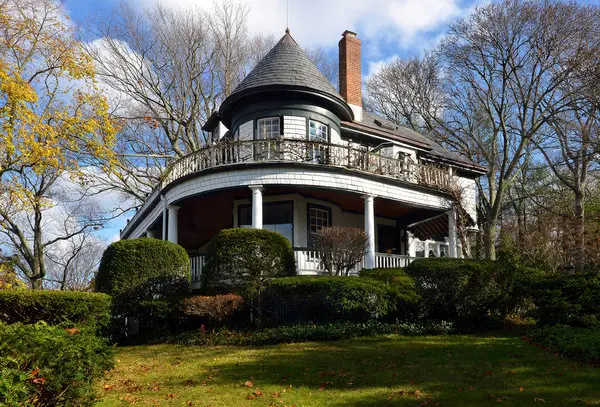When is the Best Time to Buy a House? Timing Your Purchase for Maximum Benefit

In early 2019, Sarah and Michael, a young couple in Chicago, were eager to become first-time homeowners. They had saved for years and were ready to leave their rental apartment behind. However, after months of visiting open houses and browsing listings, they were frustrated. Prices were soaring, and the competition was fierce. Discouraged but determined, they decided to wait and continue renting. That decision turned out to be a wise one. When the COVID-19 pandemic disrupted the housing market in 2020, mortgage rates fell to record lows, and some sellers became more motivated to negotiate. By the fall of that year, Sarah and Michael found the perfect home at a lower price than they had initially anticipated, with a historically low interest rate significantly reducing their long-term mortgage costs. Their patience and careful timing allowed them to purchase their dream home while saving thousands.
Sarah and Michael’s experience underscores the importance of timing when buying a house. The question of “When is the best time to buy a house?” is not easily answered, as market conditions, personal circumstances, and seasonal trends all play a role. In this article, we’ll explore when is the best time to buy a house based on market data, historical trends, and individual considerations so you can make an informed decision that fits your needs.
The Importance of Timing in Real Estate
Buying a home is one of the most significant financial decisions a person can make, and timing plays a critical role in determining the success of your investment. The best time to buy a house depends on several factors, including:
- Mortgage rates
- Home prices
- Inventory levels
- Market competition
- Personal financial situation
While market trends and historical data can offer insight into the best times to buy, your financial readiness should always be the priority. According to a 2022 survey by Bankrate, 74% of U.S. adults cite financial stress as a major concern when purchasing a home, so it’s crucial to ensure you’re financially prepared before making such a large investment.
Understanding Seasonal Trends in the Housing Market
The real estate market tends to follow seasonal patterns, and knowing how these cycles work can help you find the best time to buy a house. Typically, the housing market is most active in the spring and summer and less competitive in the fall and winter. Here’s how the seasons break down:
- Spring and Summer: The Busiest Time of Year
Spring and summer are the peak seasons for home buying, with the most listings and buyers on the market. According to data from Realtor.com, approximately 40% of all home sales in the U.S. occur between May and August. Sellers are more likely to list their homes in the spring because the weather is more favorable, and families with children prefer to move during the summer break to avoid disruptions to the school year.
However, with more inventory also comes more competition. Redfin reported that homes listed during these months tend to sell faster, with 50% of homes listed in June 2022 going under contract within two weeks of listing. For buyers, this means fewer opportunities for negotiation, higher prices, and potential bidding wars. Additionally, higher demand often leads to higher prices, with CoreLogic data showing that home prices are typically 3-5% higher in the spring and summer compared to other seasons.
- Fall and Winter: A Buyer’s Market?
Fall and winter tend to be quieter in the real estate market, with fewer listings and less buyer activity. However, this can work for buyers looking to avoid fierce competition. Sellers who list their homes during the fall or winter months are often more motivated to close a deal, whether due to relocation, financial necessity, or the desire to avoid carrying the property into the next year.
According to Zillow, homes listed between September and November typically stay on the market longer, giving buyers more leverage for negotiating price reductions. On average, homes sold in December and January tend to close at a 1-3% discount compared to their spring and summer counterparts.
One downside to buying in the fall or winter is that there may be fewer homes. Inventory tends to shrink during these months, limiting your options if you want a specific property type or location.
Mortgage Rates: Timing Your Purchase Based on Interest Rates
Mortgage rates are another critical factor when deciding the best home-buying time. Even a small change in interest rates can significantly impact the total cost of your mortgage over time. For example, a 1% increase in mortgage rates can add tens of thousands of dollars to the total amount you pay over a 30-year loan.
Historically, mortgage rates have fluctuated based on economic conditions. According to Freddie Mac, rates reached record lows during the height of the COVID-19 pandemic, with the average 30-year fixed mortgage rate falling to 2.65% in January 2021. Many buyers could lock in these historically low rates, saving thousands of dollars over the life of their loans.
However, mortgage rates have since risen. In 2023, inflationary pressures and Federal Reserve rate hikes pushed the average 30-year mortgage rate to around 6.5%. While these rates are still relatively low from a historical perspective (compared to the 8-12% rates seen in the 1980s), they represent a significant increase from the pandemic-era lows.
It may be wise to wait and lock in a lower rate if mortgage rates are falling or expected to fall. Conversely, if rates are rising, locking in a mortgage sooner rather than later could save you money in the long run.
The Role of the Broader Economy
Beyond seasonal trends and mortgage rates, the broader economy determines the best home-buying time. Economic factors such as employment rates, inflation, and consumer confidence can all influence the housing market.
For example, in the aftermath of the 2008 financial crisis, housing prices plummeted, and it became a buyer’s market as foreclosures flooded the market. Those who bought homes in 2009 and 2010 could take advantage of significantly lower prices.
Similarly, during the COVID-19 pandemic, some urban areas saw a temporary decline in housing demand as people moved to the suburbs in search of more space. However, as the economy recovered, housing prices rebounded and, in many cases, surged to all-time highs.
Keeping an eye on economic indicators, such as unemployment rates and consumer spending, can provide insight into broader market trends. The National Association of Realtors (NAR) advises potential buyers to consider factors such as job stability and future income prospects when timing their home purchase, as these factors can directly impact your ability to secure a mortgage and maintain long-term financial security.
Personal Considerations: Timing Your Purchase Based on Life Events
While market conditions play a major role in determining the best time to buy a house, personal circumstances are just as important. Major life events such as marriage, starting a family, or a job change can all influence when you’re ready to buy a home. It’s important to ensure that your financial situation aligns with your buying decision, regardless of market conditions.
A 2023 survey by NerdWallet found that 45% of Americans regret their home-buying decision, with many citing financial strain as a key reason for their regret. This underscores the importance of financial preparedness—such as having a solid down payment, a good credit score, and a manageable debt-to-income ratio—before jumping into the housing market.
If your finances are in order and you feel confident in your long-term financial stability, waiting for the “perfect” market conditions may not be necessary. While timing can help you save money, buying a home is ultimately a long-term investment that should align with your life goals.
Conclusion: Timing the Market vs. Timing Your Life
When is the best time to buy a house? The answer depends on a combination of factors: the current state of the housing market, mortgage rates, broader economic conditions, and, most importantly, your financial situation and life goals.
While buying in the fall or winter may give you more negotiating power and lower prices, you may also face a smaller inventory of homes to choose from. Conversely, buying in the spring or summer offers more choices, but you’ll likely face steeper competition and higher prices.







